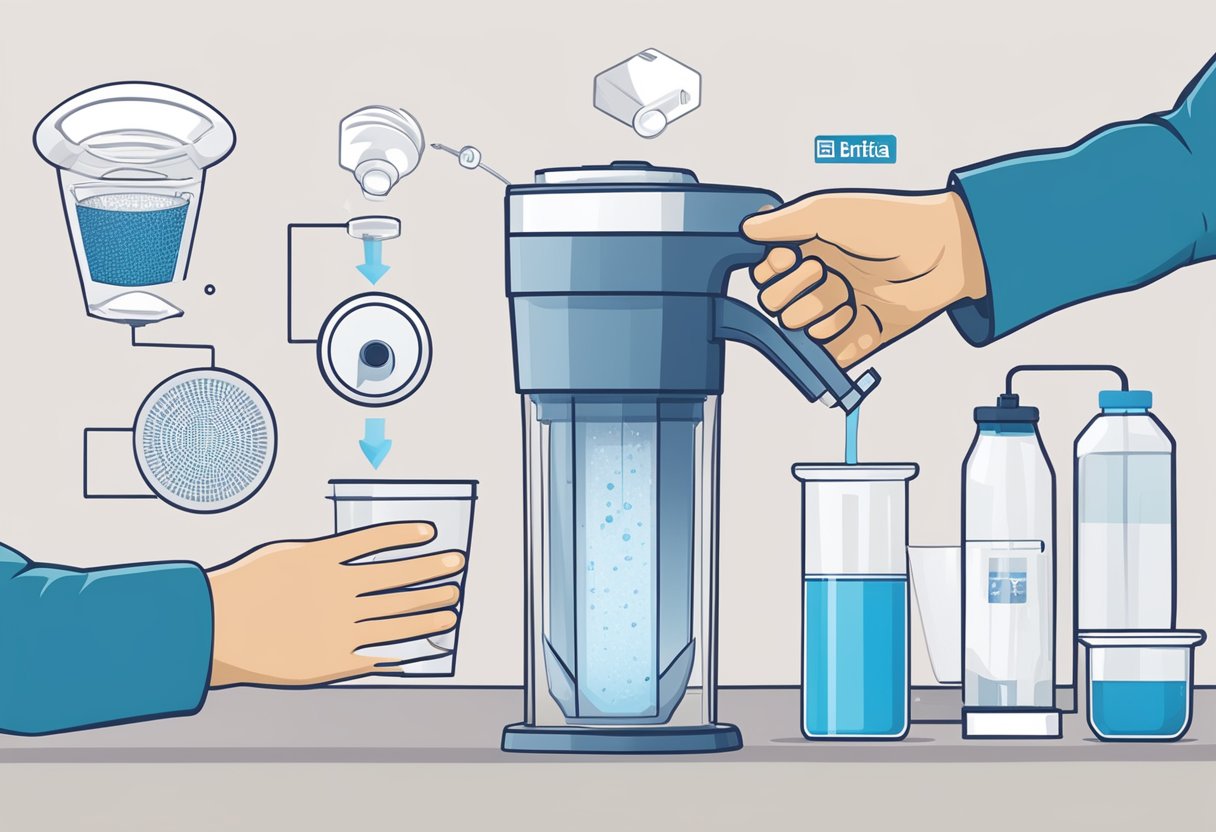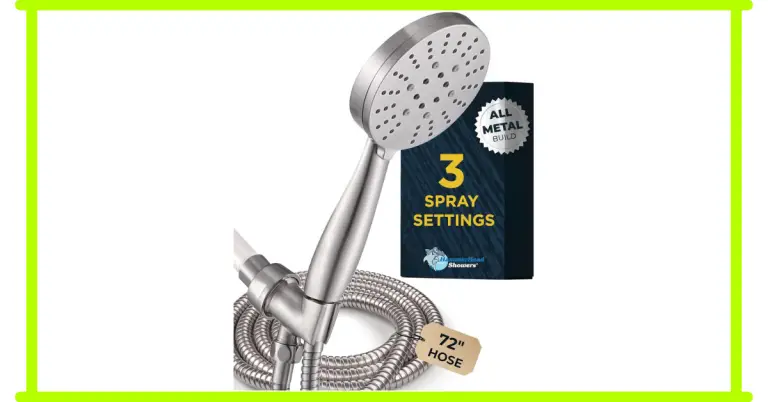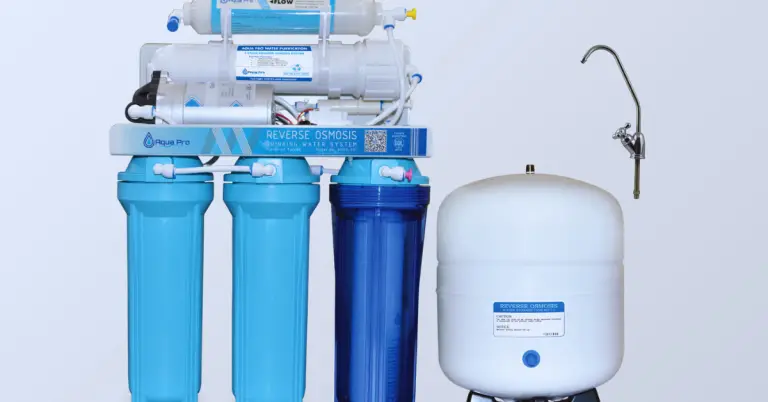What Brita Does Not Filter Out: A Comprehensive Guide
Brita water filters are a popular choice for those looking to improve the taste and quality of their tap water. These filters are designed to remove impurities and contaminants from the water, leaving it clean and refreshing. However, many people wonder what Brita filters do not remove. This article will explore the topic of what Brita does not filter out, providing readers with the information they need to make informed decisions about their water filtration needs.

One common misconception about Brita filters is that they remove all impurities from the water. While these filters are effective at removing many contaminants, they do not remove everything. For example, Brita filters are not designed to remove minerals from the water, such as calcium and magnesium. These minerals are not harmful to human health, but they can affect the taste and hardness of the water.
Another thing that Brita filters do not remove is bacteria and viruses. While these filters are effective at removing many types of bacteria and viruses, they are not 100% effective. If you are concerned about the presence of bacteria or viruses in your water, it may be necessary to use additional filtration methods or to boil the water before drinking it.
Overview of Brita Filtration

Brita filtration systems are designed to remove impurities and improve the taste of tap water. The filters use a combination of activated carbon and ion exchange resin to reduce the levels of chlorine, copper, mercury, and cadmium in the water. Brita filters are also effective at removing sediment and other particles that can cause cloudiness and affect the taste of the water.
The filters are easy to install and replace, and they are available in a range of sizes to fit different pitchers and dispensers. Brita also offers a variety of filter options, including standard filters, long-lasting filters, and filters that are designed to remove specific contaminants.
While Brita filters are effective at improving the taste and quality of tap water, they are not designed to remove all contaminants. For example, Brita filters are not effective at removing bacteria, viruses, or other microbiological contaminants. They also do not remove fluoride, which is added to many municipal water supplies to promote dental health.
Common Contaminants Brita Filters Out

Brita filters are designed to remove impurities and improve the taste of tap water. They use a combination of activated carbon and ion exchange resin to remove contaminants. Here are some of the common contaminants that Brita filters out:
Chlorine and Taste
Brita filters are effective at removing chlorine and its unpleasant taste and odor. Chlorine is added to tap water as a disinfectant, but it can also react with organic matter to form harmful byproducts.
Mercury
Mercury is a toxic heavy metal that can be found in some water sources. Brita filters can remove up to 95% of mercury from tap water.
Cadmium
Cadmium is a toxic metal that can be found in some fertilizers and industrial waste. Brita filters can remove up to 99% of cadmium from tap water.
Copper
Copper is a naturally occurring metal that can leach into tap water from pipes and plumbing fixtures. Brita filters can remove up to 99% of copper from tap water.
Zinc
Zinc is a nutrient that is essential for human health, but high levels can cause health problems. Brita filters can remove up to 98% of zinc from tap water.
Contaminants Not Filtered by Brita

Brita filters are designed to remove impurities from tap water, making it taste better and safer to drink. However, there are certain contaminants that Brita filters are not able to remove.
Fluoride
Brita filters are not designed to remove fluoride from water. Fluoride is a naturally occurring mineral that is added to water supplies in many areas to help prevent tooth decay. While some people prefer to drink water without fluoride, Brita filters are not effective at removing it.
Dissolved Minerals
Brita filters are not designed to remove dissolved minerals from water. These minerals, such as calcium and magnesium, can contribute to hard water and may affect the taste of water. While Brita filters can help reduce the amount of these minerals in water, they cannot remove them completely.
Bacteria and Viruses
Brita filters are not designed to remove bacteria and viruses from water. While Brita filters can help improve the taste and odor of water, they are not effective at removing harmful microorganisms. If you are concerned about bacteria and viruses in your water, it is recommended to use a water purification system that is specifically designed to remove these contaminants.
Arsenic
Brita filters are not designed to remove arsenic from water. Arsenic is a toxic metal that can be found in water supplies in some areas. While Brita filters can help reduce the amount of arsenic in water, they are not effective at removing it completely.
Other Heavy Metals
Brita filters are not designed to remove other heavy metals, such as lead and mercury, from water. While Brita filters can help reduce the amount of these contaminants in water, they are not effective at removing them completely. If you are concerned about heavy metals in your water, it is recommended to use a water purification system that is specifically designed to remove these contaminants.
Factors Affecting Filtration Efficiency

Brita filters are designed to remove impurities from tap water, but not all impurities can be removed by the filter. The efficiency of the filter depends on several factors, including:
1. Water Temperature
The filtration efficiency of the Brita filter is affected by the temperature of the water. The filter works best when the water is cold, as higher temperatures can reduce the effectiveness of the filter.
2. Water Quality
The quality of the water being filtered can also affect the efficiency of the Brita filter. If the water contains high levels of contaminants, such as lead or bacteria, the filter may not be able to remove them completely.
3. Filter Age
The age of the filter can also affect its efficiency. Over time, the filter can become clogged with impurities, reducing its ability to filter out contaminants. It is recommended to replace the filter every 40 gallons or two months, whichever comes first.
4. Flow Rate
The flow rate of the water can also impact the filtration efficiency. If the water is flowing too quickly through the filter, it may not have enough time to remove all of the impurities. It is recommended to follow the manufacturer’s instructions for optimal flow rate.
5. Type of Contaminant
Brita filters are effective at removing many common impurities, such as chlorine, but there are some contaminants that the filter cannot remove. For example, the filter is not designed to remove fluoride or dissolved minerals such as calcium and magnesium.
Alternative Filtration Options

While Brita filters are a popular choice for filtering tap water, they may not remove all contaminants. Fortunately, there are alternative filtration options available that can address specific water quality concerns.
Reverse Osmosis
Reverse osmosis is a filtration process that uses a semipermeable membrane to remove impurities from water. This process can remove contaminants such as lead, arsenic, and fluoride. Reverse osmosis systems are available for home use and can be installed under the sink or on the countertop.
Activated Carbon
Activated carbon filters are effective at removing chlorine, sediment, and volatile organic compounds (VOCs) from water. These filters work by attracting and absorbing impurities onto the surface of the carbon. Activated carbon filters are available in pitcher, faucet, and whole-house systems.
Distillation
Distillation involves boiling water and collecting the steam in a separate container. This process removes impurities such as minerals, lead, and bacteria. Distillation systems are available for home use and can be installed under the sink or on the countertop.
UV Sterilization
UV sterilization is a process that uses ultraviolet light to kill bacteria and viruses in water. This process does not remove impurities but can be used in conjunction with other filtration methods. UV sterilization systems are available for home use and can be installed on the faucet or in-line with a filtration system.
While Brita filters are a popular choice for filtering tap water, they may not remove all contaminants. Alternative filtration options such as reverse osmosis, activated carbon, distillation, and UV sterilization can provide additional protection against specific water quality concerns.
Maintenance and Filter Replacement

To ensure optimal performance, it is important to maintain and replace Brita filters on a regular basis. Brita recommends replacing the filter every 40 gallons or every two months, whichever comes first.
To replace the filter, first, soak it in cold water for 15 minutes. Then, insert the new filter into the pitcher or dispenser and run cold water through it for 15 seconds. Discard the first two pitchers of filtered water to flush out any loose carbon particles.
It is important to note that Brita filters are not designed to remove all contaminants, including microbiological organisms such as bacteria and viruses. Additionally, Brita filters do not remove minerals such as fluoride, which may be added to tap water in some areas.
Regular maintenance and filter replacement can help ensure that the Brita filter is working effectively to remove impurities from tap water.
Environmental Considerations

While Brita filters are effective at removing many impurities from tap water, there are some environmental factors to consider.
Firstly, Brita filters do not remove microplastics from water. These tiny pieces of plastic, often smaller than 5mm, can come from a variety of sources such as synthetic clothing, packaging, and cosmetics. They can enter waterways and eventually end up in drinking water. While the health effects of consuming microplastics are not yet fully understood, it is a growing concern for environmentalists.
Secondly, Brita filters do not remove pharmaceuticals from water. Prescription and over-the-counter drugs can enter waterways through human excretion and improper disposal. While the concentrations of pharmaceuticals in drinking water are typically low, there is concern about the long-term effects of consuming these substances.
Lastly, Brita filters do not remove fluoride from water. Fluoride is added to many municipal water supplies to help prevent tooth decay. While it is considered safe in small doses, some people may want to avoid consuming fluoride for personal reasons.
It is important to consider these environmental factors when using a Brita filter. While they are effective at removing many impurities, they do not address all potential concerns with drinking water.
Hey there, folks! I’m Sakib, the guy who runs waterfilterhub.com. I’ve had a passion for pure water since I was a kid. I’ve always known that staying hydrated is crucial, but I also understood that the quality of the water matters just as much as how much you drink. So, I decided to embark on a mission to uncover the secrets of water filtration.







